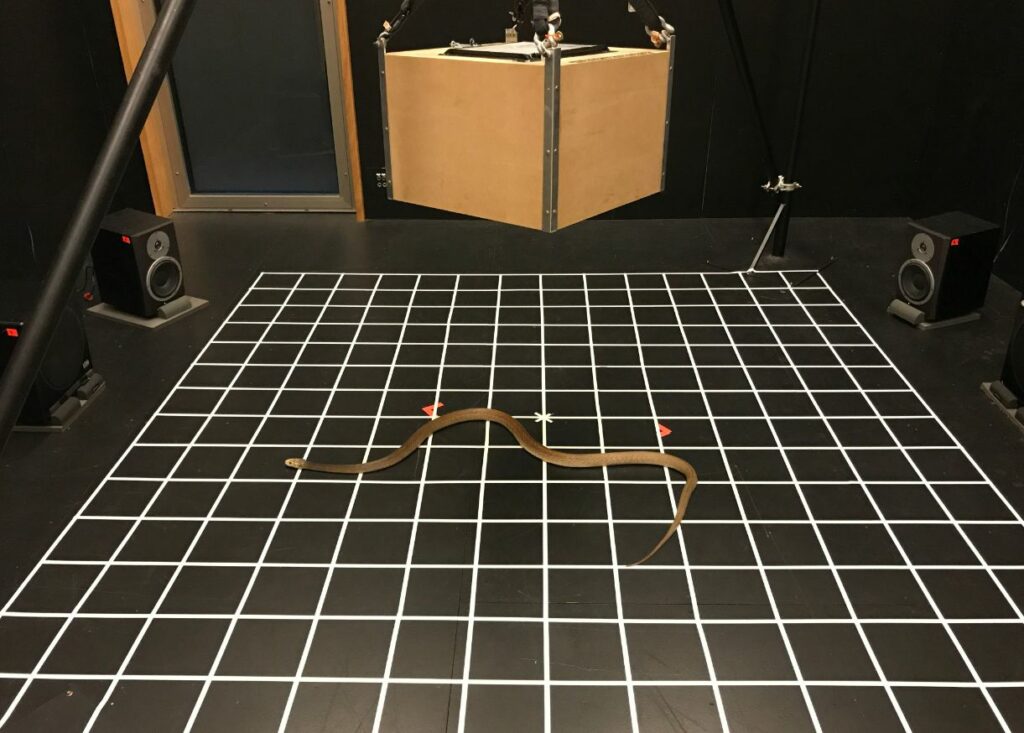People often assume that snakes are deaf because they lack external ears and can only sense vibrations via the ground and into their bodies. But, a new study published just now proved snakes are not deaf, can detect, and respond to airborne sound in addition to ground vibrations.
People often assume that snakes are deaf because they lack external ears and can only sense vibrations via the ground and into their bodies
Research done by the University of Queensland discovered that, in addition to ground vibrations, snakes can hear and respond to airborne sounds.
Dr. Christina Zdenek of the University of Queensland’s School of Biological Sciences and Professor Damian Candusso of the Queensland University of Technology worked together to play three distinct sound frequencies to captive-bred snakes one at a time in a soundproof room and watch their responses.

As “snakes don’t have external ears, people typically think they’re deaf and can only feel vibrations through the ground and into their bodies,” remarks Dr. Zdenek.
But their study “found they do react to soundwaves travelling through the air, and possibly human voices.”
The study used 19 snakes from five different genetic reptile families.
While the other two sounds were simply airborne, they played one that caused ground tremors, according to Dr. Zdenek.

This allowed them to examine the snakes’ internal ears and their tactile hearing via the scales on their bellies.
However, the responses varied greatly depending on the kind of snake.
Dr. Zdenek observed that although certain snakes, like the woma python, gravitated toward the sound, others, including the taipan, brown snake, and death adder, avoided it.
The sorts of behavioral responses also varied, with taipans being more prone to show protective and cautious behaviors to sound.
Dr. Zdenek speculates that the varying responses are the result of millions of years of evolutionary forces aimed at promoting survival and reproduction.

“For example, woma pythons are large nocturnal snakes with fewer predators than smaller species and probably don’t need to be as cautious, so they tended to approach sound,” adds Dr. Zdenek.
“But taipans may have to worry about raptor predators and they also actively pursue their prey, so their senses seem to be much more sensitive.”
These results, according to Dr. Zdenek, cast doubt on the long-held belief that snakes are deaf and hence unaffected by noises like people speaking or shouting.
“We know very little about how most snake species navigate situations and landscapes around the world.
“But our study shows that sound may be an important part of their sensory repertoire.
“Snakes are very vulnerable, timid creatures that hide most of the time, and we still have so much to learn about them.”
The findings were published in PLOS ONE.
Image Credit: Dr Christina Zdenek
